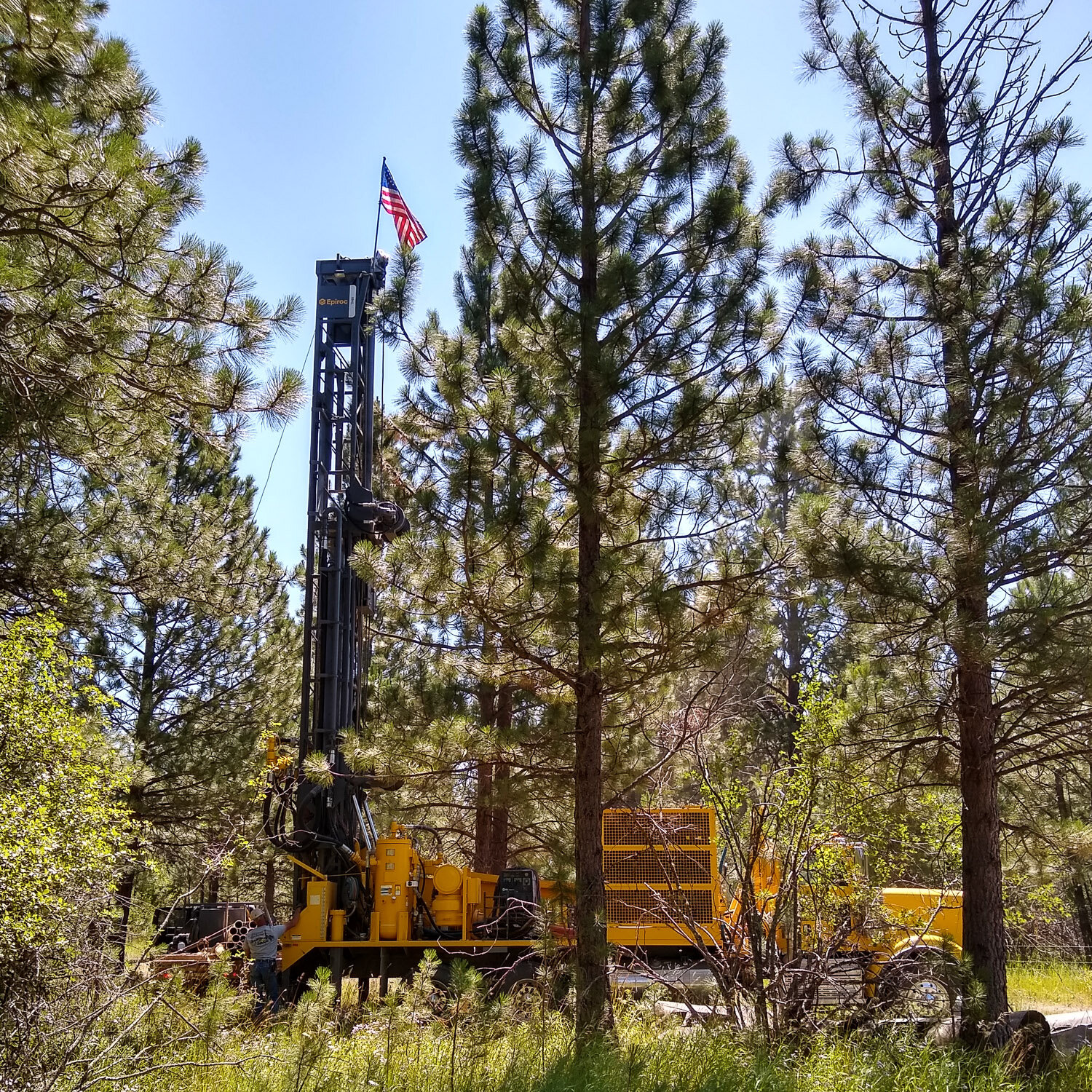HBM123: Water Witches
/Smoot Hill, with 3D replicas of Kathy Emtman’s witching rods superimposed
Some time in the 90’s, Kathy Emtman received a gift from her husband, Rick. It was a pair of bent metal rods, each shaped into long ‘L’. Nothing special, not imparted with any kind of magic, just metal rods. Colloquially, these rods are called “witching rods” or “dowsing rods”.
HBM producer Jeff Emtman (child of Rick and Kathy) remembers a scene that took place the night of that gifting: each family member taking turns holding the rods, testing who had the gift of water witching. Each person held the rods by their short end with the long ends waving around in front of them. Gripped loosely enough, the rods spin freely, seemingly with a life of their own. And believers say that when the rods cross, that’s where there’s water underground. That is...if a true witch is holding the rods.
Who’s a water witch? Well it depends who you ask. Some say that the gift is rare, some say that it’s in nearly all of us. It’s a folk belief, one not canonized in any central text and one not well supported by science. However, it persists (strongly in some places) as a regular thing for people to do when they need a well dug—cited as a way to gather a second opinion before paying a well driller to dig on their property.
And this desire for a second opinion seems quite understandable. Wells in the Palouse Region of Eastern Washington State (where Jeff grew up) often require digging hundreds of feet to find water of sufficient quality and quantity to sustain a family or a farm. These wells might cost $10,000 to $30,000 each. Further, the well drillers charge per hole dug, regardless of whether there’s water down there. So, picking the right spot is paramount.
Well driller Brett Uhlenkott calls water witching a “farce”, preferring to drill based on his understanding of the landscape, his readings of the geologic maps and his knowledge of nearby successful wells. But he’s had clients who request he drill in a spot a witch found. And if that’s what his client wants, then that’s where he drills.
Brett says there’s no mechanism for any information to travel the great distance between a witcher’s rods and a tiny vein of groundwater that runs hundreds of feet below the surface. Despite this, Brett keeps a pair of rods himself, saying that it might work for things closer to the surface. He cites an instance where he was able to locate a pipe or cable located several feet underground using the rods. Brett thinks it might have something to do with minerals, or that it might just be something that we imagine in our heads.
The mechanism most often cited for the seemingly organic movements of a witcher’s rods is so-called ideomotor movement, which is the same thing that makes Ouija boards work. Simply put, these motions are the result of unconscious movements we make when we feel something should work. With witching, these motions get amplified by the long rods, resulting in movement that seems to emerge from nothing.
Attempts to prove the validity of witching exist. Proponents cite a study by Hans-Dieter Betz that claimed incredible success rate in witched wells in countries with dry climates. This paper received criticism for its unusual methodology. Betz published another paper on water witching in a controlled environment, where he found a select few people who he claimed could reliably witch water, however that study also received criticism for its method of data analysis.
Back in the 90’s. Jeff held the rods, and he was able to find the pipes in the house, the sprinkler lines in the yard. The rods moved convincingly, crossing where they were supposed to, uncrossing where they weren’t.
Ron Libbey holds his grandson’s elbow saying that sometimes the skill can be transferred to another person temporarily if there’s physical contact.
In this episode of Here Be Monsters, Jeff revisits his hometown, debates the merits of black-box thinking with his parents (Rick and Kathy Emtman), talks with his grandma (Peggy Emtman) about the desire to have a talent she can’t have, interviews three farmers and a former farmhand (Ian Clark, Asa Clark, Ron Libbey and Owen Prout) about their experiences with witching, and asks his parents’ pastor (Wes Howell of Trinity Lutheran Church) to explain the origin of the term “hocus pocus”.
Others who helped with this episode: Lindsay Myron, Nick Long-Rinehart, Brandon Libbey, Mary Clark, Joe Hein, and Kirsten O’Brien.
Producer: Jeff Emtman
Editor: Bethany Denton
Music: The Black Spot
Smoot Hill, near Albion, Washington.














